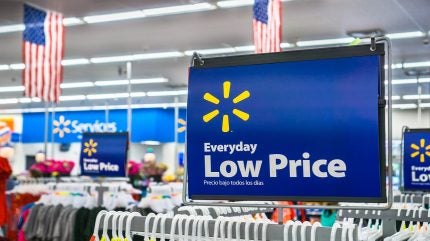
US retailer Walmart will face a class action lawsuit over allegations of deceptive pricing practices.
The lawsuit claims the retail giant has been charging consumers higher prices at the register than those advertised on store shelves, potentially costing the consumers hundreds of millions annually.
The US Court of Appeals for the Seventh Circuit reversed a lower court’s decision, allowing consumers to attempt to prove that Walmart’s pricing strategy amounted to a fraudulent “bait-and-switch.”
This conduct, they argue, violates consumer protection laws in several states.
The court dismissed Walmart’s claim that providing receipts post-purchase rectified any unfairness caused by the inaccurate shelf prices.
Circuit Judge David Hamilton stated that it is reasonable for consumers to expect the prices displayed on shelves to be accurate.
How well do you really know your competitors?
Access the most comprehensive Company Profiles on the market, powered by GlobalData. Save hours of research. Gain competitive edge.

Thank you!
Your download email will arrive shortly
Not ready to buy yet? Download a free sample
We are confident about the unique quality of our Company Profiles. However, we want you to make the most beneficial decision for your business, so we offer a free sample that you can download by submitting the below form
By GlobalDataThe lawsuit, which includes plaintiff Yoram Kahn from the Cleveland area, highlighted price discrepancies found in Illinois, Florida, Indiana and New Jersey.
The case comes after a North Carolina regulator fined Walmart in 2022 for similar issues.
Lawyers for the consumers noted that although individual discrepancies were small, they accumulated significantly over time.
Judge Hamilton remarked that it is impractical to expect consumers to vigilantly monitor prices at checkout, especially when they may be distracted. He also regarded it as unreasonable to expect shoppers to remember or record shelf prices during their shopping.
The case has now been sent back to US District Judge Sara Ellis in Chicago, who had previously dismissed it in March 2023.
The court statement said: “We reject the theory that providing a customer with a receipt after payment stating the actual price charged is sufficient, at least as a matter of law, to dispel any potential deception or unfairness caused by an inaccurate shelf price.”
In June 2024 Walmart made a $1.64m settlement with New Jersey regulators over allegations of unlawful pricing practices at its 64 retail stores across the state.



